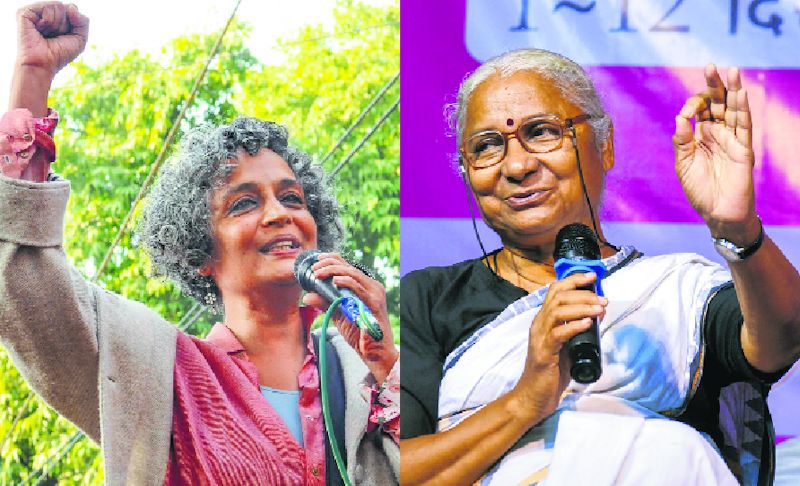When the process is the punishment
THE Process is the Punishment is the title of a book published in the US in 1979. It is concerned with handling criminal cases in the ‘lower’ courts in America. In July 2022, the Chief Justice of India (CJI) said at a function in Jaipur, “In our criminal justice system, the process is the punishment.” In this context, he specifically adverted to some aspects of our criminal justice administration, namely indiscriminate arrests (which are continuing), difficulty in getting bail (which is getting harder) and prolonged incarceration of undertrials (which has become worse). He did not mention the average number of years that a litigant has to wait for justice in any given case or the average number of adjournments in a civil or criminal case, and of course, he did not talk about witnesses being suborned. Yet, his one-sentence analysis of our justice system was correct. Consider two examples.
In the system for criminally negligent officers, the absence of any process is the punishment for society.
Arundhati Roy gave a speech in 2010, perhaps objectionable, according to some. In June this year, that is 14 years after her speech, the Lt Governor of Delhi gave sanction for her prosecution under the draconian Unlawful Activities (Prevention) Act. All these years, the prosecutor’s sword was hanging over her head. Consider this in the context of time. Life imprisonment is 20 years of prison in some states and 14 years in others. In a sense, Roy has undergone the equivalent of life imprisonment under the prosecutor’s sword. This is nothing but the process being the punishment, as the CJI tells us. But the tragic reality is that her troubles are just beginning. Her trial hasn’t begun; in fact, even the chargesheet does not appear to have been filed. Knowing how our justice system functions, if she is arrested now under the draconian law, it’s curtains as far as her personal liberty is concerned.
Arrest apart, imagine the future of the case against Roy. It can take years, if not decades, before the trial and the appeal process are over. What is it that is sought to be achieved by this farcical process?
Worse still is the case of Medha Patkar. She has recently been convicted of criminal defamation for something she said against some gentleman in 2001 — that is, 23 years ago (equivalent to more than one-and-a-half life sentences). Ironically, that gentleman is none other than the same Lt Governor of Delhi. After a protracted trial, Patkar has been sentenced to imprisonment for five months. The period of imprisonment could have been longer, but the judge said that a harsher punishment was not being given, considering her age and medical ailments. In addition to prison time, Patkar has been directed to compensate the gentleman with a payment of Rs 10 lakh. The compensation was for the “extensive harm and prolonged suffering that the complainant had endured over the 23-24 years of the legal battle”. It appears that her medical ailments were known to the judge, but no information was available of the harm and prolonged suffering that Patkar had to endure over 23-24 years of the legal battle. By the way, does she have the financial muscle to pay Rs 10 lakh to the complainant? What if she doesn’t pay the compensation? Will she spend more time in prison? Usually, in criminal cases, there is a default clause, so she may have to spend more time in prison.
Let me give you two converse examples of persons who have got off scot-free, even though their offences are far more serious than those allegedly committed by Roy and Patkar.
In May, a massive hoarding collapsed in Mumbai, resulting in the death of 17 persons and injuries to over 70. The hoarding was bigger than an Olympic-size swimming pool. Clearly, such an enormous hoarding was illegal, but reports suggest that it was approved for installation in November 2022 and was perhaps put up in 2023. In any case, it is safe to assume that it had been in place for a few months, if not more, before it collapsed. But is it safe to assume that none of the government officers saw the hoarding or having seen it, did not realise that it was illegal? Were Municipal Corporation (MC) officials complicit in the illegality? Why is it that nothing was done to prevent the installation of the hoarding or later, to take it down? More than a month after the hoarding collapsed, one police officer has been suspended. That’s all. No action has reportedly been taken against any other officer, whether from the MC or any other agency, even though 17 persons died due to criminal negligence. Are government officers not accountable? No legal process for them?
Consider also the recent fire in a so-called children’s hospital in Delhi — seven newborn babies were killed and five were hospitalised elsewhere. The hospital was running illegally for several months, yet not a single officer, whether from the municipal corporation or the health department or the fire department, took any action to shut it down or at least ensure that it conformed to all the extant safety rules, if any. Action has been taken against the management of the hospital, but no action against anybody from the government. Again, are government officers not accountable, even for their criminal negligence in not taking action against a so-called hospital? Were some of these officers complicit in any manner? No legal process for them?
So, we have two systems of criminal justice administration operating in the country — one for citizens like Roy and Patkar and another for criminally negligent officers. In one system, the process is the punishment for the citizen, and in the other, the absence of any process is the punishment for society. Which one do you prefer? Is there a right to justice?









